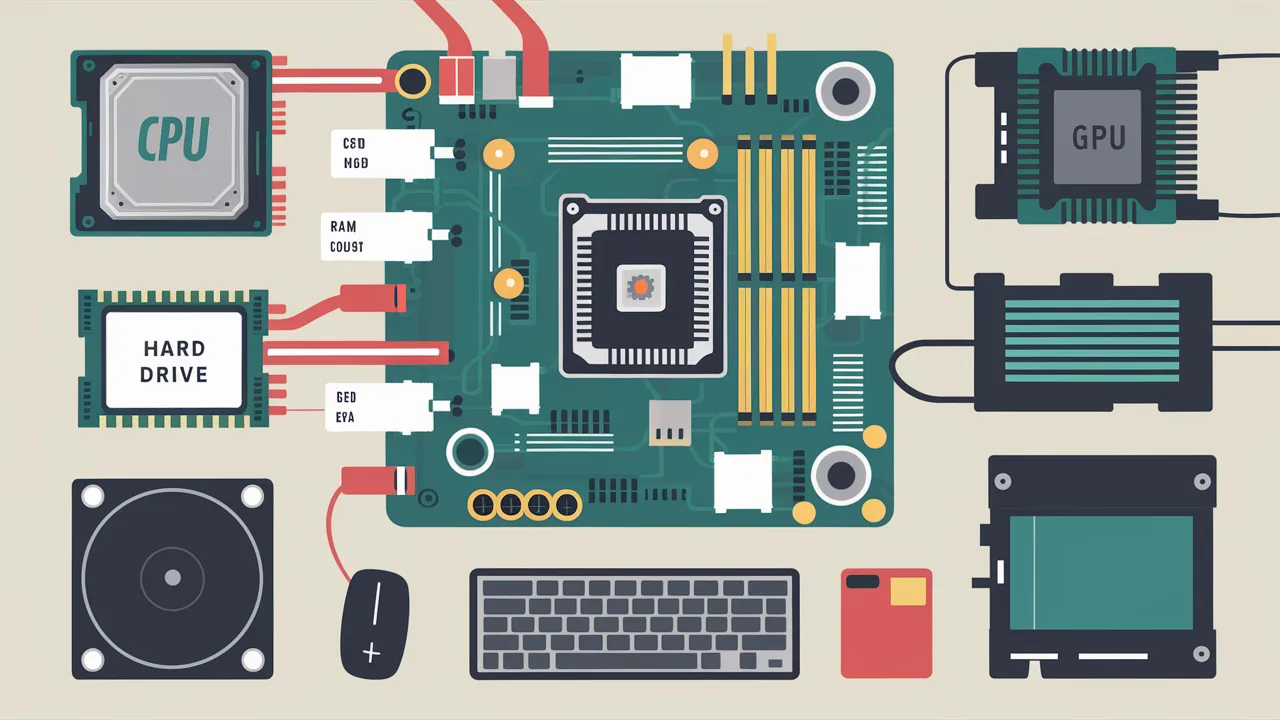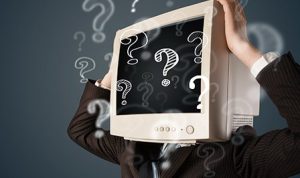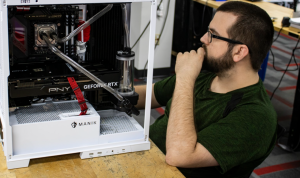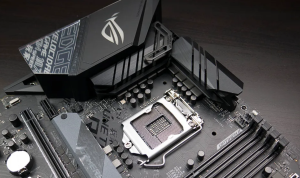Understanding the Core Components of Computer Hardware is essential for anyone looking to delve into the world of computing. Hardware forms the backbone of all computer systems, and a grasp of its fundamental components can significantly enhance your ability to troubleshoot, upgrade, or build your own machine. From processors to memory modules, each element plays a crucial role in determining performance and functionality.
This exploration not only highlights the definitions and functions of each component but also offers insights into how they interact within a computer system. Whether you’re a beginner or looking to refresh your knowledge, understanding these components provides a solid foundation for further learning in technology.
In today’s fast-paced digital landscape, the significance of effective communication cannot be overstated. Whether in a professional setting or a casual interaction, the way we convey our thoughts and ideas can greatly influence our relationships and outcomes. This article aims to explore the nuances of communication and provide insights into enhancing your communication skills for both personal and professional growth.### Understanding CommunicationAt its core, communication is the process of exchanging information, ideas, thoughts, and feelings between individuals or groups.
This exchange can take various forms, including verbal, non-verbal, written, and visual communication. Each mode of communication has its own set of rules and effectiveness that can vary depending on the context in which it is utilized. Verbal Communication: This is the most direct form of communication, involving spoken words. It allows for immediate feedback and adjustments, making it a powerful tool for conveying messages.
However, effective verbal communication requires clarity, tone, and an understanding of the audience. Non-Verbal Communication: Often overlooked, non-verbal cues such as body language, facial expressions, and gestures play a crucial role in how messages are interpreted. For instance, crossing arms might indicate defensiveness, while maintaining eye contact can signify confidence and openness. Being aware of your non-verbal signals and those of others can enhance understanding and connection.
Written Communication: In our digital age, written communication has become increasingly important. This includes emails, texts, reports, and social media interactions. Clarity and conciseness are key here; a well-structured message can prevent misunderstandings and ensure that the intended message is received accurately. Visual Communication: This encompasses images, graphs, and other visual aids that can enhance understanding. Infographics, for instance, can simplify complex data and make it more accessible.
Utilizing visual elements can support and reinforce verbal and written communication, creating a more engaging experience for the audience.### Barriers to Effective CommunicationDespite our best efforts, communication can often be hindered by various barriers. Recognizing these barriers is the first step towards effective communication. Here are some common obstacles:
1. Cultural Differences

With globalization, we often communicate with individuals from diverse backgrounds. Cultural norms and values can influence communication styles, leading to potential misunderstandings. Being culturally aware and sensitive can enhance interactions.
2. Language Proficiency
Language barriers can create significant challenges. When parties involved have different levels of language proficiency, misinterpretations are common. Simplifying language and avoiding jargon can help bridge this gap.
3. Emotional Barriers
Personal emotions can heavily influence how messages are transmitted and received. Stress, anxiety, or anger can cloud judgement and lead to miscommunication. Being mindful of one’s emotional state and that of others can improve clarity and empathy.
4. Physical Barriers
These include any environmental factors that may hinder communication, such as distance or noise. In virtual settings, technological issues can also create barriers. Finding appropriate environments for conversations can minimize these distractions.### Enhancing Communication SkillsImproving communication skills is a continuous process that requires practice and self-awareness. Here are some strategies to enhance your communication:
1. Active Listening
This is arguably one of the most important skills in effective communication. It involves fully concentrating, understanding, responding, and remembering what is being said. Practicing active listening can create a sense of respect and validation in conversations.
2. Clarity and Conciseness
Whether speaking or writing, aim to be clear and concise. Avoid overly complicated language and be direct in your messaging. This helps the audience understand your point without unnecessary confusion.
3. Empathy
Understanding and acknowledging the feelings of others can significantly enhance communication. Empathetic responses can strengthen connections and create a safe space for open dialogue.
4. Feedback
Providing and requesting feedback is essential for growth. Constructive feedback can help individuals refine their communication style, while asking for clarification can ensure that messages are interpreted correctly.
5. Practice Public Speaking
Engaging in public speaking opportunities can boost confidence and improve verbal communication skills. This can be as simple as participating in group discussions or presenting in front of a small audience.
6. Adaptability
Different situations may require different communication styles. Being adaptable and aware of the context can enhance your effectiveness. For instance, a formal tone may be more appropriate in a business meeting than in a casual setting with friends.### ConclusionIn conclusion, effective communication is a vital skill that can significantly impact both personal and professional interactions. By understanding the various forms of communication, recognizing barriers, and implementing strategies to improve, individuals can cultivate stronger relationships and achieve better outcomes.
Remember, communication is not just about exchanging words; it’s about connecting with others and fostering understanding. As you continue to develop your communication skills, you will undoubtedly find that they will serve you well in all aspects of life.





